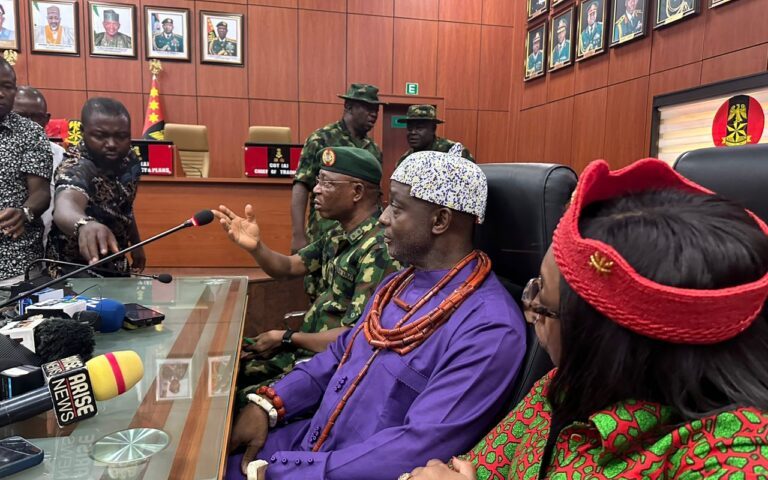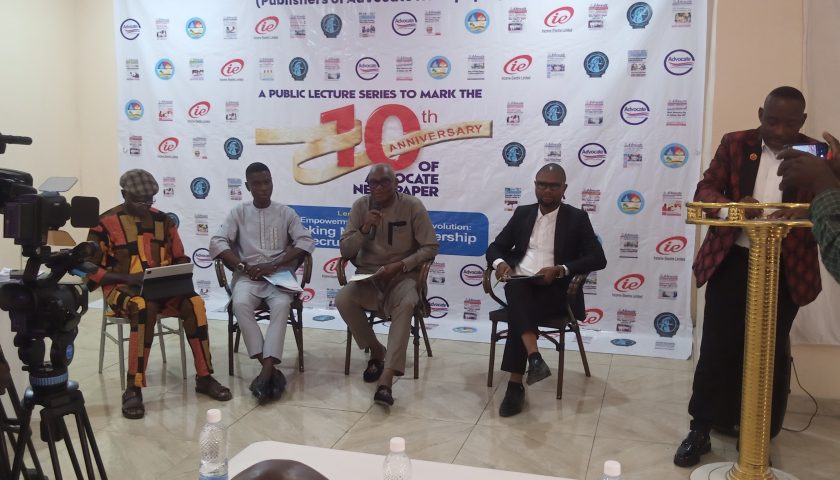By Sunny Awhefeada
There exists an abiding link between Nigerian literature and the university. Although, the tendency for the university, in many parts of the world, to be the springboard for literary flowering is well acknowledged, the case of Nigeria is rather too compelling not to enable a reference to it again and again. The seminal example of the then University College Ibadan (UCI) now University of Ibadan which served as nursery for the growth of Nigerian literature remains phenomenal and significant. When the portals of the University College, Ibadan, opened to her pioneer students in 1948, one of the starry-eyed students who walked in was a certain Albert Chinualumogu Achebe. Initially admitted to study Medicine, the young Chinua switched to English and Religious Studies. He was to take the world by surprise in 1958, exactly ten years after he matriculated at Ibadan, when he published Things Fall Apart. Considered as the father of modern African literature, Achebe went on in his lifetime to become one of the most significant writers in the annals of humanity. The example of Achebe in the telling of the Nigerian experience of the nexus between the university and literature is not insular. Beside the towering achievement of Achebe, the University of Ibadan also produced Mabel Segun, J. P. Clark, Christopher Okigbo, Wole Soyinka, Isidore Okpewho, Tanure Ojaide, Niyi Osundare, Femi Osofisan, Odia Ofeimun, Harry Garuba, Remi Raji and others too numerous to mention.
Besides Ibadan being a fertile ground for literature, she also provided an ambience for literary criticism to flourish. It is criticism that not only validates literature, but also sustains it for all times. The University of Ibadan also achieved renown because of her many literary critics, some of whom studied or taught there. The likes of MJC Echeruo, Dan Izevbaye, Abiola Irele, Ben Obumselu, Molara Ogundipe, Biodun Jeyifo, Harry Garuba and many others gave fillip to the development and validation of modern Nigerian literature. Literature flowered at Ibadan, so did literary criticism. Hence Ibadan became synonymous with Nigerian literature. It is apt to further affirm the role of the University of Ibadan in the blossoming of Nigerian literature by once again drawing attention to the phenomenon called The Horn, a student poetry magazine founded at the then University College, Ibadan by J. P. Clark at the instance of the expatriate lecturer, Martin Banham, who had studied at the University of Leeds before settling down at Ibadan. Founded by Clark, Bridget Akwada, John Ekwere and Aigboje Higo, The Horn existed for less than a decade, but ended up publishing the poetic juvenilia of students who later became the leading lights of modern Nigerian poetry.
The foregoing testament has been replicated in many a Nigerian university with varying degrees of success. One of such instances is the story of the literary effervescence at the Delta State University, Abraka. The university town of Abraka has carved a niche for itself as a centre of learning beholding to excellence. Beginning in the 1940s as a Teachers’ Training College, it evolved into a College of Education in 1969 and later into a full-fledged university in 1992. In those days, the 1940s, when colleges were far and in between the one at Abraka attracted students from far and near and thus the name Abraka was fairly well known in many places. When it became a College of Education in 1969, it benefitted from the magic wand of then Lt. Col. Samuel Ogbemudia, the military governor of the defunct Midwest State, who turned the State into Nigeria’s most progressive state. The College of Education was designated a UNESCO Centre of Excellence with immense global influence. When eventually the institution took off as a university in 1992, it did so with uncommon aplomb. Abraka had become synonymous with tertiary education and from hence university education. Just as it has been with Ibadan and Nsukka as famous university towns so has it been with Abraka. Anywhere Abraka is mentioned what first registers in the mind is the university.
Abraka has since become the writer’s haven. Famous for her beaches with alluring blue waters, Abraka could have been home to William Wordsworth and Samuel Coleridge. The lush green forest beyond the blue and sometimes sparkling waters of the enchanting River Ethiope could have assuaged the fears Thomas Grey expressed in “Elegy Written in a Country Church Yard”. Decades of intense urbanization and aggressive encroachment has not robbed Abraka of her pristine Eden. The ambience speaks to a measure of ambivalence inherent in the hurly burly of the metropolis and the serene almost sedate allure of the riverside which is an eco-sanctuary. It is this contradictory experience and binary replication of existence that constitute the raison d ‘tre of the literary effulgence of Abraka. Reinforcing the natural inclination of Abraka to the artistic calling is the University’s Faculty of Arts especially the Departments of English and Literary and Theatre Arts.
The Department of English and Literary Studies was one of the foundation departments when the University was founded in 1992. All the lecturers in the Department at inception had affiliations with Ibadan as former students. The compelling literary character of Ibadan was writ large on them and it took no time before they transposed the phenomenon on the consciousness of the students. Thankfully, the curriculum was a mélange of different literary traditions from which the eager students received lasting inspirations. Imbibed from the plurality of literary works taught to the students were the spirit and tenor of Romantic poetry which the River Ethiope provided. The Ethiope which is a predominant natural phenomenon in the Delta not only became a source of inspiration to the apprentice writers, but was also a motif in poem after poem.
The earliest recorded moment of creative writing at the Delta State University, Abraka, dates back to the decade of her emergence as a full-fledged university. The students founded a literary magazine called Afflatus in 1992 which was the year the University was founded. The maiden edition labeled vol. 1, 1992 was edited by Idowu Iledayo Ereoah. With a foreword by the Head of Department, then Mr. Dumbi Osani, the edition had in its fold, eight poems, three short stories and six critical essays. Other students who published in Afflatus in those early years include Michael Eshebinoma, Chux Ohai, Martin Ogbitebu and Bode Ekundayo Steve. The now notable poet, Ebi Yeibo, edited an edition of the magazine in 1995 during his time as a student. Some of the students whose works were published in that edition included Alex Omoni, Emmanuel Biri, Tony Jibunoh, Abel Ageh, Ebi Yeibo, etc. Some other editions were published in 1999 with Ekanpou Enewaridikeke as editor and in 2000 edited by E. O. Ichima. The poems in all the available editions reflect an emergent if not amateur poetic sensibility which is concomitant with the age and exposure of the young writers. Encoded in those eager lines are hopes, aspirations, impediments, politics, the environment, dreams, love, disappointments and other motifs incidental to their experience, age and consciousness. The river motif and other appurtenance of nature dominate the writings.
In the first decade, outside the Department of English and Literary Studies, the throbbing of creativity were also heard from the Department of Performing Arts (now split into the Department of Theatre Arts and the Department of Music). The Department had the fortune of having then Dr. Sam Ukala, already established writer, who was on sabbatical as its pioneer Head of Department. The lecturers in the Department showed commendable inclination towards writing. Eni Jologho Umuko, Austine Anigala, Dan Omatsola and Elo Ibagere tried their hands on a variety of literary genres. Chukwuma Anyanwu, then of the Department of Mass Communication when it was domiciled in the Faculty of Arts, also wrote plays and poetry. Noticeable in the creative output of the Theatre Arts lecturers was the slant towards drama unlike the preference for poetry that came from the Department of English and Literary Studies. Umuko authored The Scent of Crude Oil (2010), Anigala wrote Dance of Death (1995), Riddles of Life (1996), Cold Wings of Darkness (2006), The Living Dead (2006) and Drops of Rotten Deals (2019), Ibagere published Dusk at Noon (2013), Survival Strategy and Random Talks (2018) and Sunrise Once Again (2021). Anyanwu authored Evil Hold (2010), Another Weekend Gone (2010), Heartbeats (2011) among other titles.





